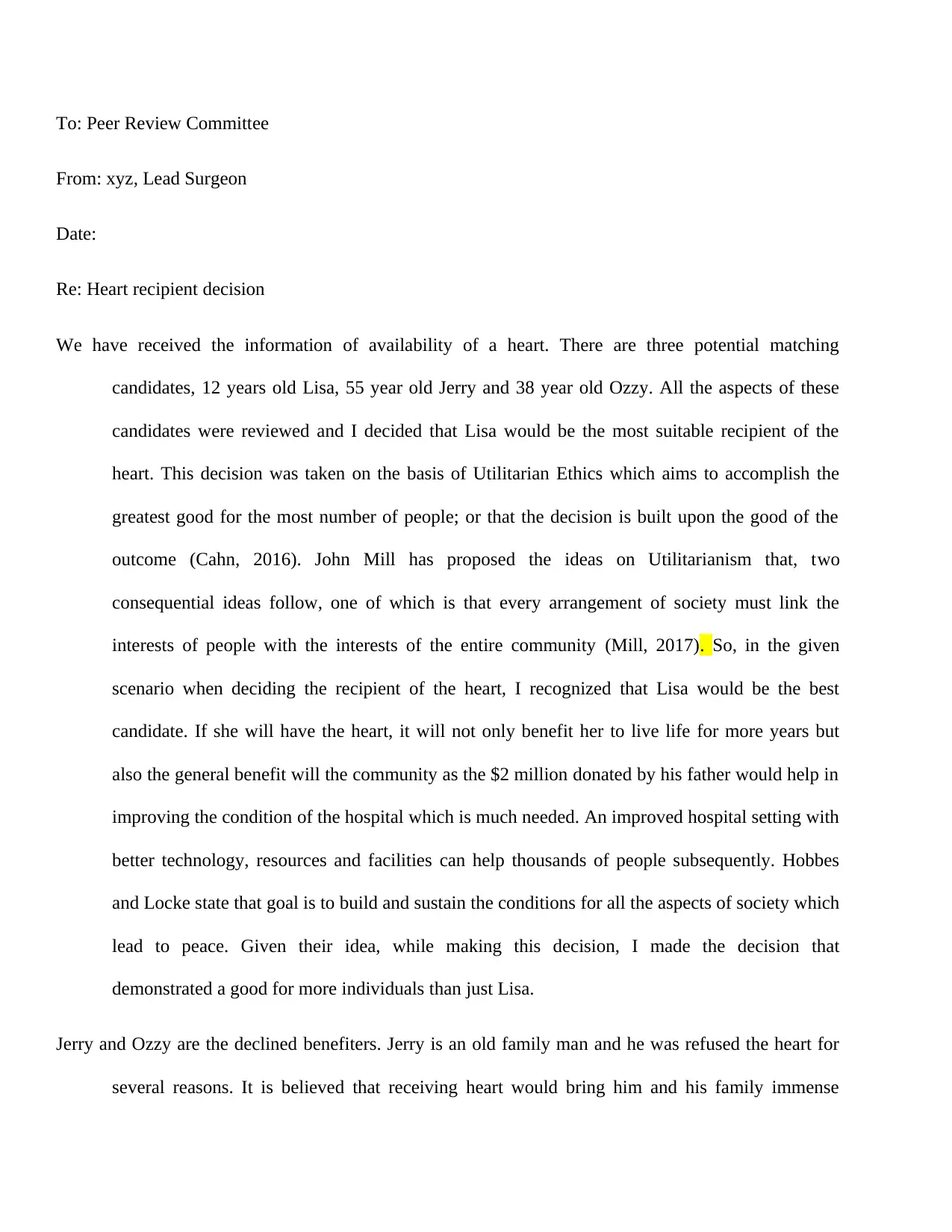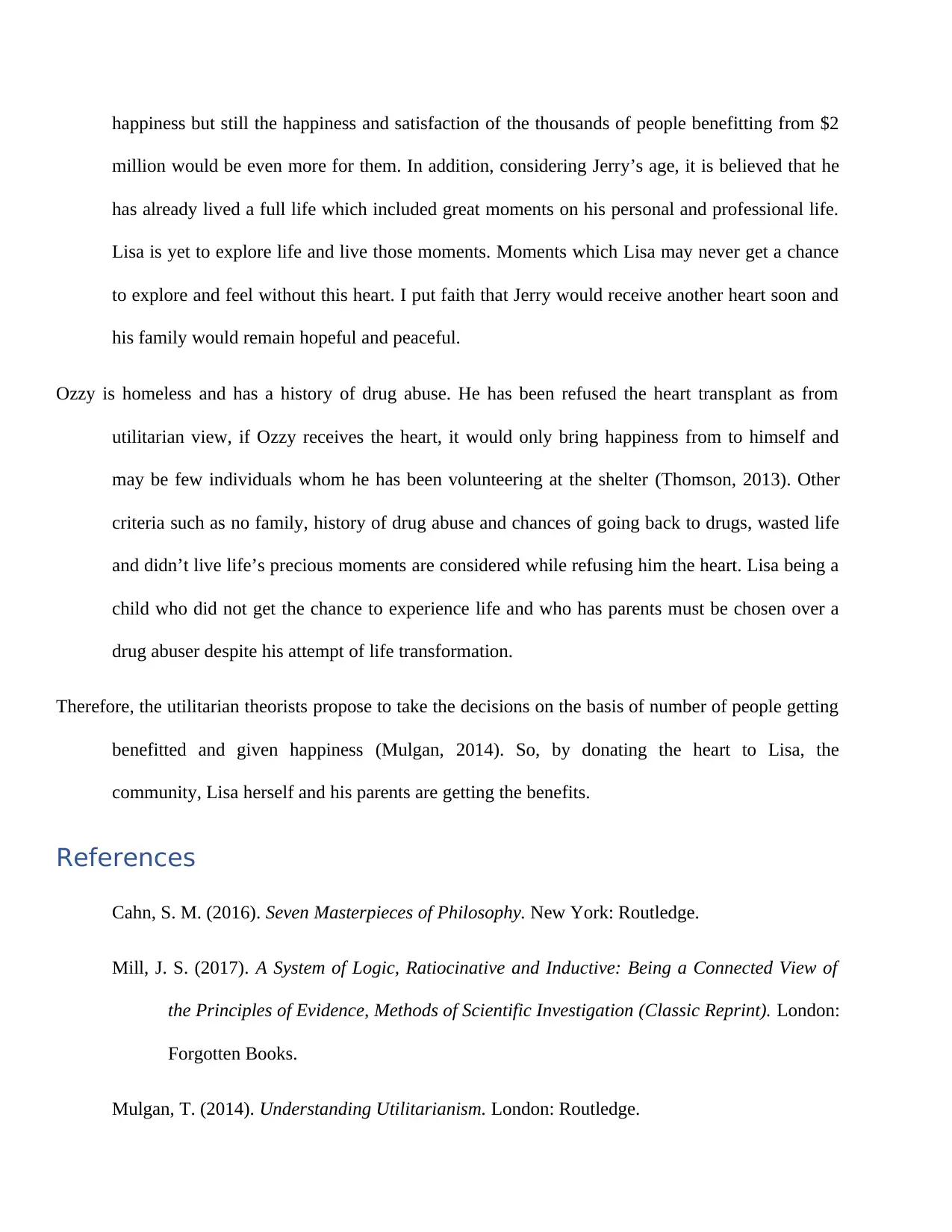Utilitarianism in Practice: Heart Transplant Recipient Selection
VerifiedAdded on 2023/04/21
|4
|717
|208
Presentation
AI Summary
This presentation discusses the ethical dilemma of choosing a heart recipient among three candidates (Lisa, Jerry, and Ozzy) from a Utilitarian Ethics perspective. The lead surgeon decides to give the heart to Lisa, a 12-year-old, because her transplant would not only save her life but also benefit the hospital and community through her father's $2 million donation. This decision aligns with Utilitarianism, aiming for the greatest good for the greatest number. Jerry, a 55-year-old, and Ozzy, a 38-year-old homeless drug abuser, are declined due to Utilitarian considerations. Giving the heart to Lisa is believed to bring more overall happiness and benefit to the community compared to the other two candidates.
1 out of 4







![[object Object]](/_next/static/media/star-bottom.7253800d.svg)